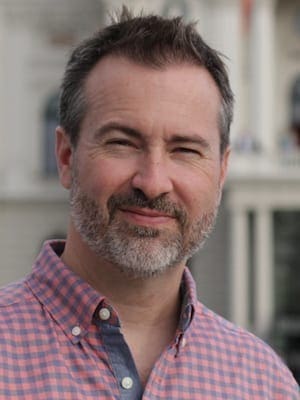“I unplug to __________.”
If you unplugged for a day and got off the grid, what would you do?
Read? Sleep? Get outside? Catch up over coffee?
These are some of the planned activities when people unplug from sundown to sundown on March 7-8 – the National Day of Unplugging (NDU).
The NDU asks folks to sign a pledge to unplug on the given day and do something different: “connect with the people in your street, neighborhood and city, have an uninterrupted meal or read a book to your child.”
The NDU grew out of the Sabbath Manifesto in 2010, which was itself developed by a group of Jewish artists looking to “reboot” some of the more meaningful rituals and traditions of Jewish life.
The Sabbath Manifesto lists 10 principles. No. 1: “Avoid technology.”
I love the principle – even though I confess I would find it difficult to unplug for a day. But that’s the point.
“We increasingly miss out on the important moments of our lives,” the initiative says, because we’re glued to screens. We even shut out life’s ambient noise with our own audio concoction.
This fact isn’t necessarily an unintended consequence of the technology. It’s a selling point.
“We do everything on our phones,” reads a new iPhone 5 print ad. “That’s why the new A7 chip was designed to handle, well, everything.”
A new print ad for Bose QuietComfort 15 Acoustic Noise Cancelling headphones reminds us that the world “isn’t exactly a quiet place. That’s why we pioneered noise cancelling headphones. Put them on, and you’ll hear more of the full, rich sound of your favorite music – because you’ll hear less of everything else around you.”
The NDU and the spirit behind it call to mind a book by Quentin J. Schultze, “Habits of the High-Tech Heart: Living Virtuously in the Information Age.”
It was published in 2002 and carried endorsements from Eugene Peterson, Marva Dawn, Walter Ong, Richard Mouw and many others.
Remember what didn’t exist in 2002: Facebook, Twitter, Youtube, iPhones, the iTunes store.
But even then, Schultze knew to write, “We will have to invest as much time and energy in the habits of our hearts as we do in our high-tech practices.”
“In the information age, we can use the noise of messaging to avoid intimacy with God,” he wrote, “just as we use the daily diversions of videos and recorded music to circumvent troubled interpersonal relationships.”
The Sabbath Manifesto and NDU stake a claim for investing in habits of the heart.
I’m sure an economist could smear the NDU with a statistical projection of the monetary blow delivered by even a day’s reduction of our digital living. After all, No. 5 on the Sabbath Manifesto is “Avoid commerce.” Ouch.
But that’s only counting the cost – not the reward.
No. 2: “Connect with loved ones.”
No. 6: “Light candles.”
There is a light to be loved, and it’s not the glow from your tablet.
 Cliff Vaughn is media producer for EthicsDaily.com. You can follow him on Twitter @Cliff_Vaughn.
Cliff Vaughn is media producer for EthicsDaily.com. You can follow him on Twitter @Cliff_Vaughn.

